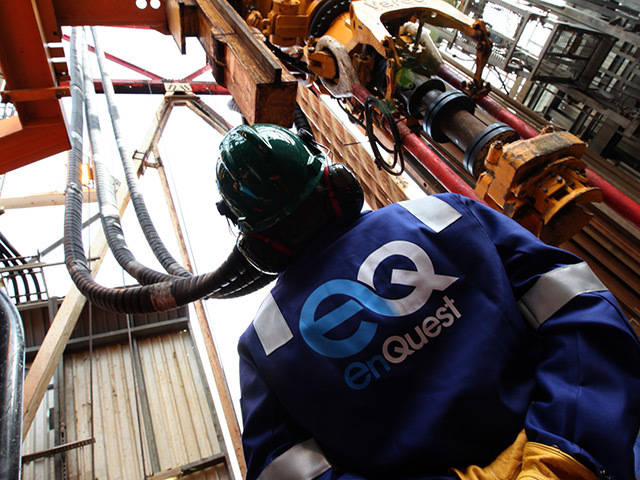
EnQuest has stated a “great future” is in store for its Magnus platform after severing ties with West of Shetland gas.
Speaking at Offshore Europe, infrastructure and new energy director John Penrose set out his hopes for the installation, which has been hit by production woes in recent months.
EnQuest took over the Magnus field in the Northern North Sea from BP in 2018, when a project to boost production via gas injection was underway. Once ownership transferred to EnQuest, it had to buy the gas from BP from fields like Clair and Schiehallion hundreds of miles away.
Mr Penrose said that chapter is now behind the field.
“When BP operated the field prior to EnQuest there was a water alternating gas project ongoing, that was gas injection from west of Shetland”, he said.
“We actually reviewed the subsurface and the benefit of that and actually just gone back to a traditional water flood, so we’re no longer reliant on that West of Shetland gas. They’ve removed that line so, in a way, you’re in control of your own destiny now rather than another source of gas to support you.”
Magnus has been subject to outages and a drop in production, according to EnQuest’s first-half results released last week.
The field, which lies 100miles north-east of Shetland and has been in production since 1983, dropped from 18,806 barrels of oil equivalent per day in H1 2020 to 13,847 in H1 2021.
It comes after EnQuest has called time on other ageing assets in recent times, such as the Thistle and Heather fields.
But Mr Penrose said the asset has still got plenty of life ahead.
“In terms of the future of Magnus it’s still got a great future”, he said.
“We’ve drilled four wells on Magnus since we took over operatorship, they’ve been extremely good, the last well has been extremely good that we drilled last year. We have a plan to drill a few more wells next year and in the future. It’s got a very good future, Magnus, and not reliant on west of Shetland gas for reinjection.
“That gas can be used as a low-carbon fuel for other uses and we’re going to continue producing gas from Magnus for the foreseeable future with just traditional water flood techniques.”
Recommended for you

